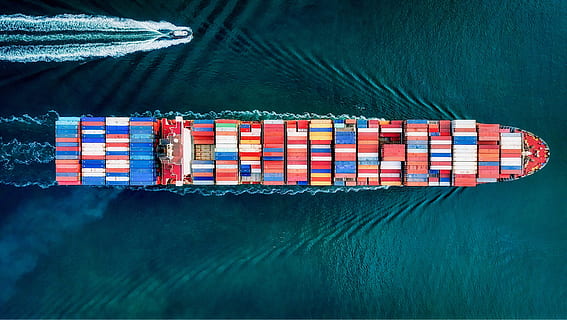Dubai has evolved as a global hub for trade and logistics, thanks to its infrastructure of world-class roads, ports, and airports, as well as its central location and free trade regulations.
Geographically, Dubai’s location—a prime spot between the East and West—makes it an ideal location for connecting and servicing the two halves of the world by road, air, and sea. Aside from that, the city’s logistics capabilities and infrastructure, together with cheap costs, free-trade rules and agreements, and growing investments and trade relations, make it a profitable gateway.
The logistics business is believed to have contributed approximately 14% of the UAE’s GDP, which is expected to expand over time.
Here are some key aspects of the role of shipping lines in Dubai‘s economy:
Global Connectivity:
Dubai’s geographic location between Europe, Asia, and Africa makes it a very important hub for international trade. Shipping lines in Dubai connect the emirate to major ports around the world. This enables efficient transportation of goods.
Trade Facilitation:
Shipping lines are the backbone of Dubai’s trade infrastructure. They facilitate the import and export of a wide range of goods. The efficient movement of cargo through the ports of the city has a significant effect on the overall economic activity.
The Port of Jebel Ali is one of the largest and busiest ports in the world. It is a key element in Dubai’s shipping ecosystem. Shipping lines operate in and out of this port. They are known to operate a substantial portion of the region’s container traffic.
Logistics and Supply Chain:
Shipping lines are integral to the logistics and supply chain network in Dubai. They play a vital role in the overall efficiency of the supply chain. Shipping lines also ensure that goods are transported seamlessly from manufacturing centers to end consumers.
Free Trade Zones:
Dubai has established numerous free trade zones, including the Jebel Ali Free Zone (JAFZA). Businesses benefit from favorable customs regulations and simplified procedures for shipping and logistics in these free zones. Shipping lines play an important role in connecting these free zones to global markets.
Economic Diversification:
Dubai’s leadership has actively worked towards economic diversification. The diversification happened in the process of reducing dependence on oil revenue. The maritime sector, including shipping, is a key component of this diversification strategy. It has contributed to the growth of the emirate’s non-oil economy.
Tourism and Cruise Industry:
Dubai has developed a thriving tourism and cruise industry. This tourism industry is attracting visitors from around the world. Shipping lines contribute to the growth of this sector by facilitating the movement of cruise ships and enhancing the overall maritime tourism experience.
Conclusion
In summary, shipping lines are a linchpin of Dubai’s economic success. They provide the necessary transportation and logistics infrastructure to support UAE’s role as a global trade and business hub. The efficient movement of goods through maritime routes enhances Dubai’s competitiveness in the international market and contributes significantly to its economic development.


